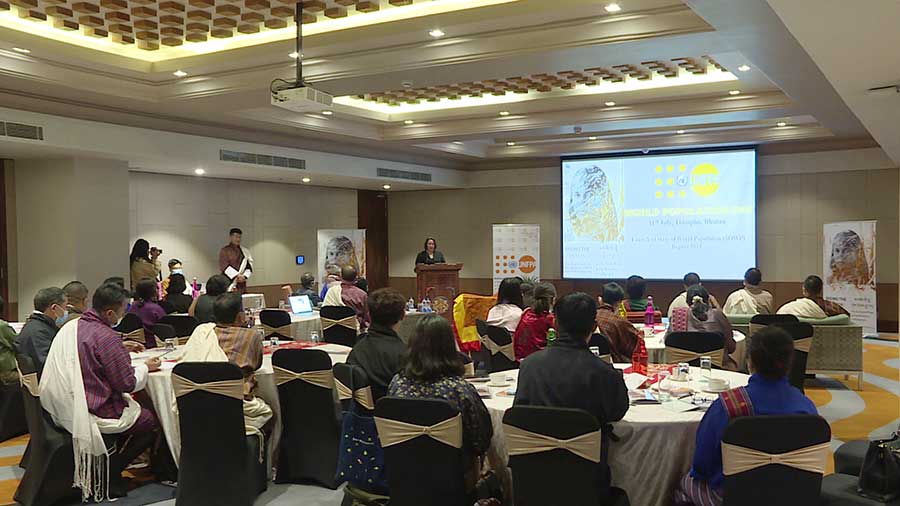
Elsewhere in the world, inaccessibility to contraception is one of the leading causes of unintended pregnancies. But in Bhutan, lack of Sexual and Reproductive Health education and women shying away from availing themselves of contraceptives are the causes. To prevent unintended pregnancies, the United Nations Population Fund called for decision-makers and health systems to prioritize improving the accessibilities, quality of contraceptives, and expanding sexual and health care information.
Unintended pregnancy refers to unplanned pregnancies that occur in a woman who was not planning to have children or when it occurs earlier than desired. According to the State of World Population report 2022 launched today, nearly half of all pregnancies across the world are unintended. And it is caused by a lack of sexual and reproductive health care and information, contraceptive options and harmful norms and stigma.
Health Minister Dechen Wangmo said access to contraceptives is not an issue in the country. “Yet people don’t come forward and then what are we doing about it? Are we having a conversation with Aum Pem in Lunana, who has a daughter, a 10-year-old, and a 12-year daughter? Are we having enough conservation in the family, institutions, in universities?
“In 2015, we did a small survey in Nganglam in the east. The surveyors contacted 500 women and surveyed unintended pregnancies. They found one in five was all unintended pregnancies. They assume that their partner would be with them but in between the partner did not support them. In some of them, contraception failed,” said Meenakshi Rai (PhD), the Programme and Service Director at RENEW.
The State of World Population report 2022 states that globally more than one million unintended pregnancies occur of which over 60 per cent will end in abortion.
“We have to address unintended pregnancies. In Bhutan, unfortunately, we don’t have that much data to show the extent of the problem. All we know is, anecdotal stuff of cases about unintended pregnancies but we need to address it,” said Phuntsho Wangyel, the Head of Office of the UNFPA.
With the theme of ‘seeing the unseen: the case for action in the neglected arises of unintended pregnancy,’ the report urges all individuals to empower women and girls to take affirmative decisions about sex, contraception, and motherhood.
Kelzang Choden
Edited by Sangay Chezom









